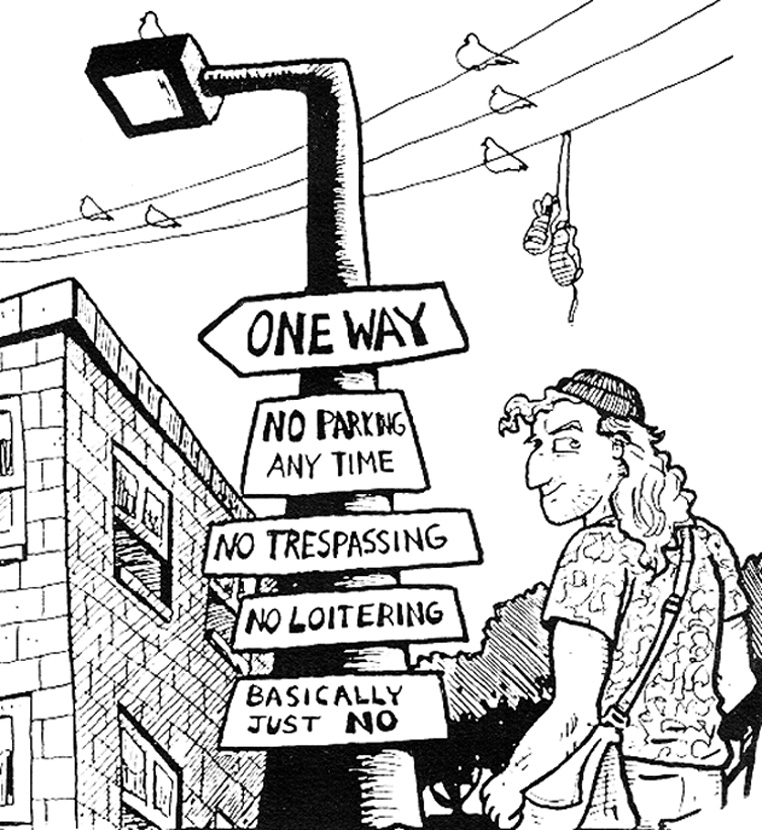In the 1980s, I successfully worked at a pizza delivery job for about eight months. I was able to earn a meagre living with part time hours. I had a subsidized apartment, and this allowed me to live on the small amount that I earned. I had developed a system that deflected the psychological pressure of the job. But I was in my twenties, and there are a lot of things I could do back then that I can’t do now. App-based driving is a similar situation to that job, but without coworkers to talk to and without the give and take of having a living supervisor.

Our economy and our economic system are skewed so unfairly that they leave behind millions of people, giving them no means of supporting themselves. In my case I’ve had to fight hard not to be taken off public disability benefits. I feel as though I am unfairly targeted. And the same goes for subsidized housing. Both branches of government have tried shenanigans to try to bump me off. So far, I’ve been able to deal with this, but it leaves me with an unsettled and insecure feeling.
I’ve been on both sides of app-based driving. I’ve received numerous deliveries from Doordash that consisted of groceries from Safeway. I’ve also made several attempts to work for Doordash. I earned a total of twenty-four dollars about two years ago when I tried it. I saw how it is potentially a very convenient way of getting needed cash if you can do the job. When I tried it, I was hindered by a central nervous system of someone who has taken strong neuroleptic medications at high dosages for more than thirty years, and I was hindered by mere age. Although I have seen a few older men doing delivering.
I do not try do Doordash as a source of extra income for numerous reasons, one of them being hypertension. In a pressured scenario, I could just imagine the extreme levels to which my blood pressure could climb. Also, I have a sleep disorder. This makes it a lot harder to perform at driving on a consistent basis.
Yet, for the nondisabled poor, app-based driving is a valuable resource. I’ve seen people delivering and bringing along children, because the driver cannot afford to pay for childcare. Many people who work at Doordash are from other countries. This job is valuable because nearly anyone can get it and do it. Insofar as how unpleasant it is, it is not my favorite thing to do. The app is set up to put a lot of pressure on the driver.
The playing field is obscenely skewed in favor of the rich. It deprives money and economic opportunities for those at the bottom, and merely remaining housed and fed are difficult. App-based driving might reduce the threat of global warming, since it probably has a net effect of taking people off the road who would otherwise be driving.
App-based driving completely lacks benefits, it lacks matching Social Security, it lacks unemployment benefits, it lacks State Disability, it lacks minimum wage, and it lacks any kind of coverage in a mishap. If something goes wrong, you’re on your own. It is an opportunity that exists but is an example of how the rich are getting richer while depriving the poor of anything but the bare minimum.
Nonetheless for some, it is a good opportunity in the world that we currently live in. You are supervised by a phone and not a human, and this has advantages. The work is a hundred percent flexible. If you have a lot of other obligations, you can squeeze it in at almost any time they have work. App-based driving is a mixed bag; it is a sign of desperate times, but it fills a need for many.
Jack Bragen is author of “Revising Behaviors that Don’t Work,” “Instructions for Dealing with Schizophrenia,” and “Jack Bragen’s 2021 Fiction Collection,” and lives in Martinez.
